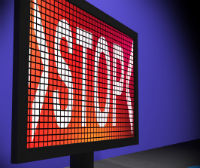British provider BT encourages users to challenge the court decision to block sites

The British provider BT , obeying the court’s demands for blocking certain Internet resources, did not limit itself to displaying a stub page. On the corresponding page, he lays out for review the full list of blocked services, and in addition, he explains to his users that they “have the right to file a lawsuit in court with a request to release the locks if you have suffered from them”. Thus, ordinary users and owners of disgraced sites get useful information at their disposal in case they decide to dispute the blocking in court.
In many countries, fighters for copyright compliance are trying to block access to the so-called. "Pirated" sites that violate this very copyright. To do this, the legislation introduces the rules on which providers are required to implement such procedures. However, many providers do not like it - both because of the fact that additional opportunities cost money, and because providers are better than lawmakers understand the principles of the functioning of the Internet and the harm from blocking everything and everyone.
BT is currently the largest provider in the UK, with 4.6 million users. In total, the black list compiled by court decisions already contains 93 resources. Claims leading to these decisions were initiated by representatives of the music and film industry. The provider followed the example of another major network, Sky, which provides Internet and digital television. That also on the special page gives a detailed list of blocked resources, indicates the date and the initiator of the lock.
')
In Russia, the infamous so-called. The “law against the Internet” allows you to block websites without any trial or investigation, and from next year it will be possible to block websites altogether. In particular, the GitHub repository has already been blocked several times, based on a file loaded by one of the users with a description of the methods of suicide.
Source: https://habr.com/ru/post/364069/
All Articles